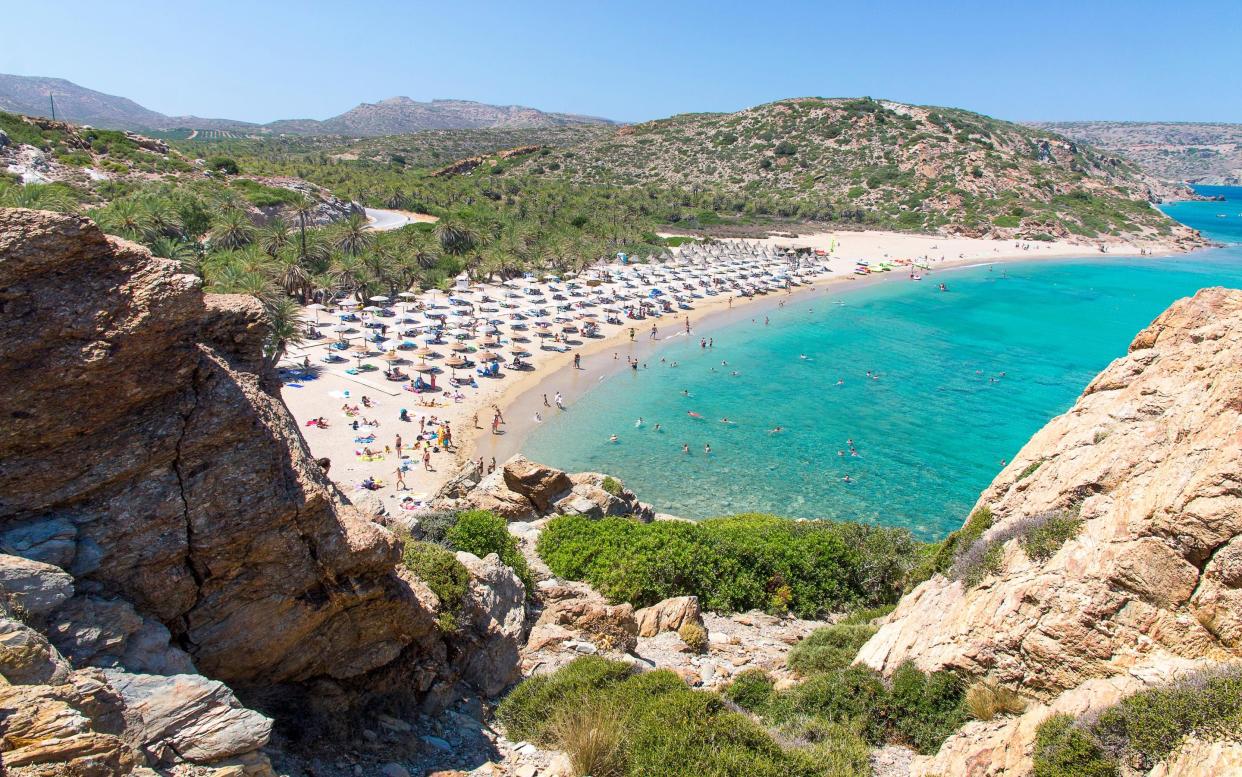Is it legal, or sensible, to go on an ‘amber list’ holiday?

- Oops!Something went wrong.Please try again later.
Is the Government gaslighting both travellers and holiday companies? It feels that way to me. Even as the Transport Secretary, Grant Shapps, spoke last Friday, confirming that international leisure travel would no longer be illegal, we were being given mixed messages. Now the confusion is getting worse.
The problem with the initial statement centred on the Government’s attitude towards the amber zone. While you may legally go to any of the amber-listed countries (including most of Europe), in reality “you should not be travelling to these places right now,” said Shapps. His words have been backed up by official DfT advice: “You should not travel to amber list countries or territories for leisure purposes.”
“You may but should not” is an incredibly unhelpful construction which is guaranteed to cause confusion and uncertainty if you have a holiday or a flight already booked to an amber-listed destination. Especially since, in many cases, those flights and holidays are still operating.
But the gaslighting has been made worse by an additional strand of official caution – this time from the Foreign Office (FCDO) – which has been adjusting its published advice for several key holiday destinations. While still advising against “all but essential travel” to Spain and Greece for example, the FCDO now makes specific exceptions for the Canaries and several Greek islands. Even though these are in the amber zone.
Watch: Should I book a holiday in 2021?
So let me try to make things a little clearer for you. You may go to Greece. Though you shouldn’t. But if you do, you must only go to the larger islands of Rhodes, Kos, Zakynthos, Corfu and Crete. (Even though, by the way, the entire populations of Greece’s smaller islands have now been vaccinated).
The inconsistencies between the FCDO and DfT advice effectively increase the number of traffic lights from three to four: red, green and, let’s call them reddish-amber and greenish-amber.
Destinations in the amber zone to which the FCDO advises against travel – let’s say Santorini for example, must be thought of as reddish-amber. Most tour operators are likely to cancel holidays to these destinations. Tui and Easyjet Holidays for example, say they won’t operate to places where the FCDO advises against travel. But they will be going to Crete, which I’m dubbing greenish-amber. The DfT frowns on it, but not the FCDO.
Independent travellers may also be disconcerted to find that, while it may be legal to go to Santorini, and they may be happy to do so, they will almost certainly find that their travel insurance is invalid, though it will be fine if they went to Crete.
The reason for this confusion seems to be that the two Government departments have different roles which are not being properly aligned. The Department for Transport is worried about the risk travellers might pose to the risks of the country at large – of importing more Covid cases and more variants back to the UK. That is why we face such stringent testing and self-isolation requirements when we return from an amber zone.
The FCDO’s job, however, is – or should be – to protect us from risks to ourselves while we are out of the country. It says its advice is “based on the current assessment of Covid-19 risks.” But it doesn’t specify how it is assessing those risks and it seems to be doing it slightly differently to the DfT, or at least with a different emphasis. And even more problematically – unlike the DfT which has told us when it will be reviewing its traffic light ratings – the FCDO tends to change its advice without notice.
This disjunct needs to be sorted as a matter of urgency. Some uncertainty is inevitable as the pandemic takes new twists and turns, but it needs to be managed with clarity and decisiveness, not mixed messages and competing advice. No wonder On the Beach has just announced that it has stopped selling new holidays until September. The current approach is simply not sustainable for travellers or for the travel industry.

